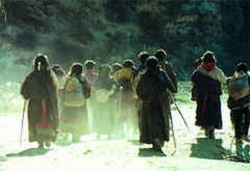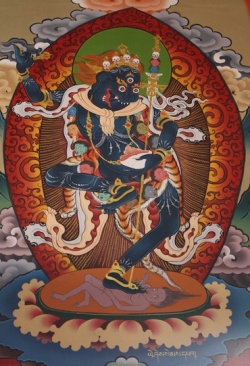7 adhikaranasamathas
- See also :
- See also :
The category of adhikaraṇasamatha is slightly different in the sense that these are not, strictly speaking, rules but ways to proceed in order to settle conflicts.
Four kinds of conflicts are listed:
- (vivādādhikaraṇa) dispute about what is dhamma, what is not dhamma, what is vinaya, what is not vinaya, what Buddha taught, what Buddha did not teach, what constitutes an offence, what does not constitute an offence;
- (anuvādādhikaraṇa) accusation of pārājika or of saṃghādisesa;
- (apattādhikaraṇa) infringement of a rule within one of the seven kinds of āpatti;
- (kiccādhikaraṇa) disagreement on the procedures related to the four kammavācās.
To settle such conflicts, Buddha prescribed seven methods to proceed.
adhikaraṇasamatha 1
Settling a conflict by confrontation. The conflict is dealt with in the presence of the two parties in conformity with the vinaya.
adhikaraṇasamatha 2
Settling a conflict by taking into account the reputation of a bhikkhu. The conflict is settled through a declaration by the saṃgha with respect to the innocence of an arahanta against whom allegations have been made, after having asked him if he remembers to have committed the offence.
adhikaraṇasamatha 3
Settling a conflict by taking into account the insanity of a bhikkhu. The conflict is settled through a declaration by the saṃgha, when the accused is found to be insane.
adhikaraṇasamatha 4
Settling a conflict after an admission. The conflict is settled after admission of a fault by the party concerned.
adhikaraṇasamatha 5
Settling a conflict by a majority decision. The conflict is settled after a decision taken by majority vote.
adhikaraṇasamatha 6
Settling a conflict by judgement of the ill will of a bhikkhu. The conflict is settled through a declaration by the saṃgha in cases when the accused shows ill-will by eluding the questions addressed to him.
adhikaraṇasamatha 7
Settling a conflict by covering the act with grass. The conflict is settled by exoneration of faults by the saṃgha (except for pārājika, saṃghādisesa and any offence in relation with the laity), when this allows to terminate the dispute and to reconcile the parties is disagreement.


